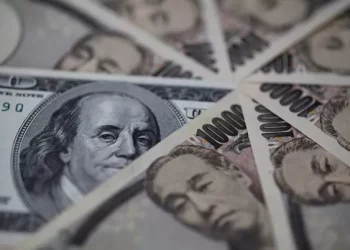In the ever-evolving landscape of international finance, understanding currency exchange rates is crucial for businesses, investors, and individuals engaged in cross-border transactions. One of the key pairs in this intricate dance of global currencies is the Chinese Renminbi (RMB) and the Thai Baht. In this article, we delve into the current RMB exchange rate, specifically examining the relationship between the yuan and baht, shedding light on the factors influencing these currencies, and analyzing the implications for various stakeholders.
The Basics: Yuan and Baht Defined
Before delving into the current exchange rate, let’s take a moment to understand the fundamentals of the Chinese Renminbi (RMB) and the Thai Baht.
Chinese Renminbi (RMB):
The official currency of the People’s Republic of China, the Renminbi, is abbreviated as RMB or CNY (Chinese Yuan). It is issued by the People’s Bank of China and is used in mainland China, while the term “yuan” refers to the primary unit of the currency.
Thai Baht:
The official currency of Thailand, the Baht, denoted as THB, is issued by the Bank of Thailand. It plays a vital role in the economic landscape of Thailand and is widely used for both domestic and international transactions.
Current Exchange Rate: Yuan to Baht
At the time of writing, the exchange rate between the Chinese Renminbi and the Thai Baht stands at 5.03. This numerical value reflects the amount of Thai Baht one can obtain in exchange for one Chinese Yuan. Understanding this rate is pivotal for businesses engaged in Sino-Thai trade, investors eyeing opportunities in both markets, and travelers planning financial transactions during their visits.
Factors Influencing the Exchange Rate
The exchange rate between the RMB and Baht is subject to a multitude of factors, ranging from economic indicators to geopolitical events. Here are some key influencers:
Economic Indicators:
Trade Balances: The trade balance between China and Thailand can impact their respective currencies. If China exports more goods to Thailand than it imports, it may lead to an increased demand for the yuan and vice versa.
Interest Rates: Variances in interest rates set by the central banks of both countries can influence the attractiveness of their currencies to investors.
Political Stability:
Geopolitical Events: Political stability or instability in either China or Thailand can impact investor confidence, subsequently affecting the exchange rate.
Market Sentiment:
Speculation: Traders and investors’ expectations and speculations about future economic conditions can lead to short-term fluctuations in the exchange rate.
Inflation Rates:
Divergent Inflation Rates: Disparities in inflation rates between the two countries can influence their currencies’ purchasing power.
Global Economic Conditions:
Global Economic Trends: Economic conditions on a global scale, such as recessions or periods of robust growth, can impact the exchange rate.
Historical Perspective: Yuan to Baht Trends
Analyzing historical trends in the RMB to Baht exchange rate can provide insights into long-term patterns and potential future movements. Historical data can reveal periods of volatility, stability, and the impact of significant events on the currency pair.
Implications for Businesses and Investors
Understanding the current RMB exchange rate and its relationship with the Thai Baht is essential for businesses and investors looking to navigate the international financial landscape. Here are some implications for various stakeholders:
Importers and Exporters
Businesses engaged in cross-border trade between China and Thailand need to monitor exchange rates closely. Fluctuations can impact the cost of imports and exports, influencing profit margins.
Investors:
Investors with portfolios spanning both Chinese and Thai assets should consider the exchange rate when making investment decisions. Currency movements can affect the overall returns on investments.
Tourists and Travelers:
Individuals planning trips between China and Thailand should be aware of the exchange rate to optimize their currency exchanges and manage travel expenses effectively.
Financial Institutions:
Banks and financial institutions operating in both countries must adapt their strategies to align with currency fluctuations. This includes managing foreign exchange risk and offering competitive rates to customers.
Mitigating Currency Risks: Strategies for Stakeholders
Given the inherent volatility in currency markets, businesses and investors can adopt various strategies to mitigate currency risks associated with the RMB to Baht exchange rate. Some effective strategies include:
Forward Contracts:
Engaging in forward contracts can help businesses lock in exchange rates for future transactions, providing certainty in budgeting and reducing exposure to currency fluctuations.
Diversification:
Investors can diversify their portfolios across different currencies and asset classes to spread risk and reduce the impact of adverse movements in the RMB to Baht exchange rate.
Hedging Instruments:
Utilizing hedging instruments such as options and futures contracts can be effective in managing currency risk, offering protection against unfavorable exchange rate movements.
Stay Informed:
Continuous monitoring of economic indicators, geopolitical events, and market sentiment is crucial for businesses and investors to stay informed and make informed decisions.
See Also:Current RMB Exchange Rate: Deciphering Yuan to HKD Dollar
Looking Ahead: Future Trends and Developments
As we look to the future, several trends and developments could shape the RMB to Baht exchange rate. These include:
Bilateral Agreements:
Bilateral agreements between China and Thailand can impact the exchange rate. Trade deals, investment agreements, and economic partnerships can influence the demand for each currency.
Economic Policies:
The implementation of monetary and fiscal policies by the central banks of both countries can influence the exchange rate. Adjustments in interest rates and economic stimulus measures can lead to currency movements.
Global Economic Conditions:
The recovery or downturn of the global economy will likely have repercussions on the RMB to Baht exchange rate. External factors, such as the global economic recovery post-pandemic, will play a significant role.
Conclusion
In conclusion, understanding the current RMB exchange rate, particularly in relation to the Thai Baht, is essential for anyone involved in international finance. The dynamics of this currency pair are influenced by a myriad of factors, and staying informed about these variables is crucial for making sound financial decisions. Businesses, investors, and individuals alike must employ strategic approaches to manage currency risks and capitalize on opportunities in the ever-changing landscape of the global economy. As we continue to witness the evolution of international markets, a nuanced understanding of the yuan to baht exchange rate will undoubtedly remain a valuable asset.
Related Topics:
Current RMB Exchange Rate to Pakistani Rupee
Current RMB Exchange Rate: Yuan to Pounds
Current RMB Exchange Rate: Yuan to Rand
























